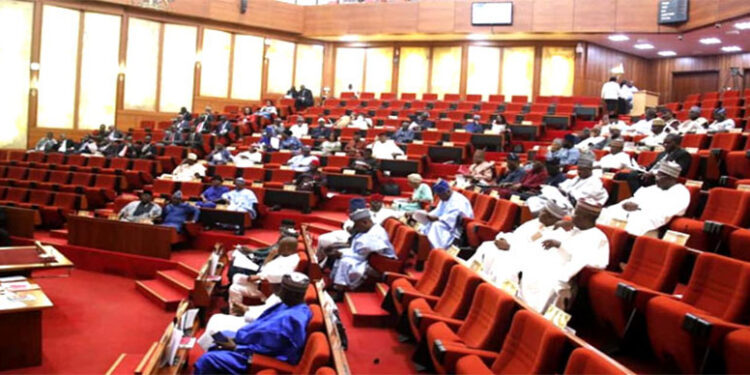The Senate was thrown into turmoil on Wednesday as it entered an emergency closed-door session to discuss the enforceability of the financial autonomy granted to Nigeria’s 774 Local Government Councils by the Supreme Court in August. The debate was triggered by Senator Tony Nwoye (LP, Anambra North), who raised concerns that some state governments were attempting to bypass the Supreme Court ruling by pushing counter-laws through their state Houses of Assembly.
Citing Orders 41 and 51 of the Senate Standing Rules, Nwoye alleged that certain governors were advocating for legislation that would require local councils to remit funds into a State/Local Government Joint Account, a practice the Supreme Court had declared unconstitutional. Nwoye’s motion, co-sponsored by nine other senators, sought the enforcement of the ruling.
The discussion took a turn when Senator Adamu Aliero (PDP, Kebbi Central) raised a constitutional point of order, urging the Senate to halt the debate. He cited Section 287 of the 1999 Constitution, which mandates nationwide enforcement of Supreme Court judgments, stating that there was no need for further debate on the matter.
Senate President Godswill Akpabio echoed Aliero’s view but pointed to Section 162, subsection 6 of the Constitution, which established the State/Local Government Joint Account. He suggested that constitutional amendments would be required for the full implementation of the Supreme Court ruling.
Amid the discussion, tensions rose as Senator Nwoye invoked Order 42 for a personal explanation, while Senator Abdulrahman Summaila Kawu (NNPP, Kano South) raised a similar point of order, resulting in confusion. The chaotic scene led several senators to approach the Senate President for clarification, prompting the Senate to adjourn into an emergency closed-door session at 12:46 PM.
The outcome of the session is yet to be disclosed.
























